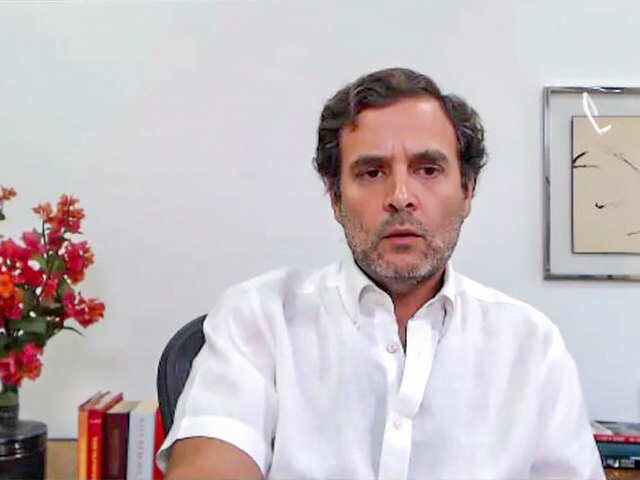New Delhi, Feb 3: Union minister Prakash Javadekar on Monday said Delhi Chief Minister Arvind Kejriwal had called himself an "anarchist" and there is not much of a "difference between an anarchist and a terrorist".
His remarks come a few days after the Election Commission issued a show cause notice to BJP MP Parvesh Verma for allegedly calling Kejriwal a "terrorist".
Addressing a press conference here, Javadekar raked up the issue of Kejriwal "staying a night at the Moga residence of Khalistan Commando Force chief Gurinder Singh during the Punjab Assembly polls".
"You knew it was a militant's house. Still, you stayed there. How much more evidence do you need?" he said.
"Kejriwal is now asking with a sad face, 'am I a terrorist?' You are a terrorist and there is a lot of evidence to prove that. You yourself had said you are an anarchist. There is not much of a difference between an anarchist and a terrorist," the senior BJP leader said.
Flanked by Delhi BJP chief Manoj Tiwari and Union minister Anurag Thakur, Javadekar said the Aam Aadmi Party (AAP) was supporting Shaheen Bagh, where slogans of "Assam ko azadi", "Jinnah wali azadi" were being raised. "Supporting such slogans is also terrorism".
He alleged that Kejriwal stood with Jawaharlal Nehru University (JNU), where "anti-India slogans were raised, and did not grant sanction to prosecute (those who raised the slogans)".
"On January 26, you threatened that you would stop their prosecution. How much more proof do you need? The people of Delhi now know that you are the chief of liars, you are an anarchist and sympathise with terrorists.
"You are supporting Shaheen Bagh, JNU, the slogans being raised there and all such anarchists...then you are definitely a terrorist. This is your identity, no matter how innocent face you make," he said.
On Thursday, the Election Commission had issued a show cause notice to Verma, the BJP MP from West Delhi, for allegedly calling Kejriwal a "terrorist".
He was earlier barred from campaigning for 96 hours (four days) for making controversial remarks at a poll meet recently.
An emotional Kejriwal had later said it was for the people of Delhi to decide whether they consider him their son, brother, or a terrorist.
"How have I become a terrorist? I've arranged for medicines...did so much for the needy. I've never thought of myself or my family... am ready to give my life for the nation," he had said at a press conference.





Comments
RSS is a terrorist organization and they made agreement with another terrorist BODO organization.
Kejrival or others no need to clarify these goons.
Who are these goons to be replied,
They are the worst terrorists on this whole universe.
Kerjrival and AAP team, don't look at these goons, just focus on your unfinished next work.
Add new comment